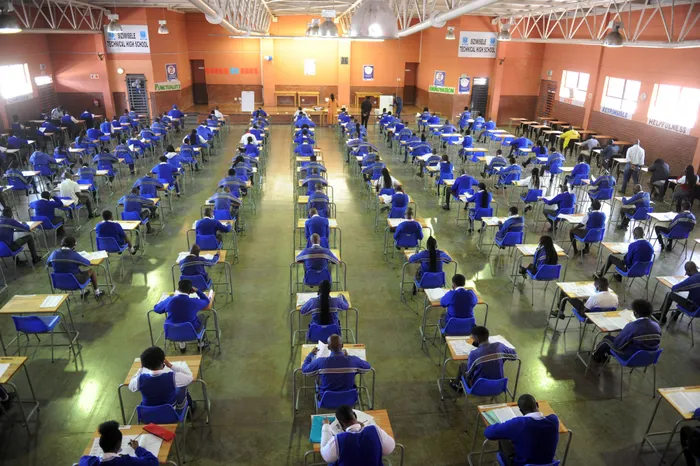Matric marking begins: Concerns mount over readiness and script security as exams wrap up

The matric exams will conclude this week.
Image: Ayanda Ndamane / Independent Newspapers
As the 2025 National Senior Certificate (NSC) exams enter its final days, attention is shifting from the difficulty and stress of exams to the more complex issue that follows: the marking of nearly a million scripts nationwide.
Marking is expected to begin across all provinces this week. Still, questions arise about whether centres are fully staffed, how prepared markers are, and how securely the remaining exam papers are being stored.
The Department of Basic Education (DBE) has repeatedly said it is “on track” for the national marking period. The marking period typically runs for three weeks and involves more than 40,000 markers.
Provinces including Gauteng, Western Cape, and KwaZulu-Natal, which handle the bulk of the exam load, have confirmed that their major centres are ready, with venues secured and moderation teams in place.
Before scripts are marked, all markers go through a standardisation process where they are trained on the national memoranda. This is meant to ensure fairness and consistency countrywide.
The DBE has emphasised that stricter quality assurance will be applied this year, with moderators visiting marking centres more frequently. Internal moderators are expected to conduct daily sampling of scripts, while Umalusi, the quality assurance body, will carry out external monitoring.
This heightened scrutiny follows concerns raised in 2024 about inconsistencies found in certain centres during moderation. For 2025, the department has said quality control will be “non-negotiable”.
While most attention turns to marking readiness, exam security remains a major focus until the final paper is written. The DBE has previously described the period between the last writing day and the collection of all scripts as “the highest-risk window”.
Most provinces store remaining scripts overnight in locked strongrooms with CCTV surveillance and dual-control access, meaning no single official can access the room alone. Script courier vehicles are also required to be GPS-tracked, and supervisors must sign off on custody transfers.
Despite these safeguards, it's worth noting that script security breaches do occur from time to time. Leaks of Mathematics and Physical Sciences papers in prior years have led to major investigations and interventions, and officials remain wary of copycat attempts.
For 2025, the department said it has introduced additional electronic seals and improved chain-of-custody logs at several high-volume centres. Teacher unions have welcomed the effort, noting that “one leak can undermine public confidence in the entire NSC system”.
Although no confirmed digital leaks have been reported for 2025, education experts warn that the threat landscape has evolved. Unlike in previous years, where physical paper breaches were the dominant fear, 2025 poses new risks: AI-powered cheating tools, covert mobile devices, and attempts to photograph scripts inside centres.
The DBE has urged invigilators to remain “extremely vigilant” for the final week of exams, especially in high-stakes papers. Some provinces have even restricted the personal devices of officials handling scripts.
Marking will run through December, followed by a rigorous moderation process before the results are scheduled for release in January. Umalusi is expected to make its approval announcement in the first week of 2026.
While the DBE insists the system is ready and secure, the combination of staffing pressures, digital threats, and the sheer scale of the operation means the weeks ahead remain critical.
IOL
Related Topics: